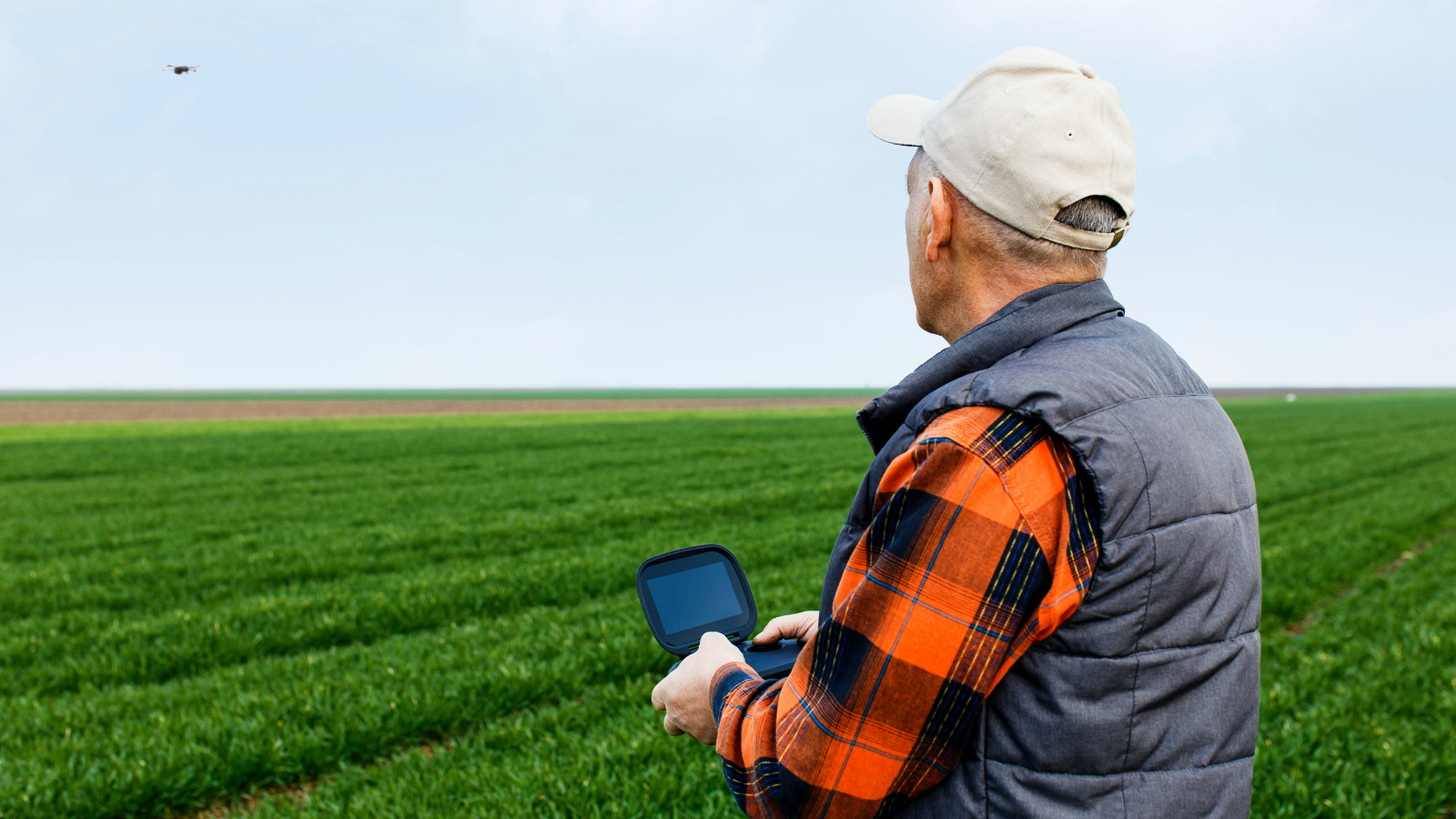Science
Canada Secures Just 2% of Global Farm Tech Investment, Report Reveals

Canadian farms are experiencing a complex landscape as they navigate economic challenges and environmental pressures. Recent data shows that farm cash receipts reached $25.6 billion in the first quarter of 2025, marking a 3.1% increase from the previous year. Despite a successful nationwide initiative to promote Canadian goods, farmers are grappling with geopolitical uncertainties related to tariffs and the escalating impacts of climate change, including more frequent and severe wildfires.
A new report from Farm Credit Canada (FCC), authored by business intelligence analyst Bethany Lipka and senior economist Isaac Kwarteng, highlights a significant concern: Canada captures only 2% of global farm tech investment. This stark statistic suggests a widening gap that restricts Canadian producers’ ability to adapt, compete, and grow in an increasingly globalized agricultural market. The report warns that without a substantial increase in research and technology funding, Canada risks stagnating in productivity growth and forfeiting its chance to lead in the agricultural technology sector.
Declining Investment in Agricultural R&D
The report indicates that Canada has been on a downward trajectory in agricultural research and development (R&D) for over three decades. This trend is rooted in the country’s decreasing spending on agricultural knowledge generation, which is measured by the Organization for Economic Co-operation and Development (OECD). Once a leader in this area, Canada now lags behind not only the United States and Japan but also below the OECD average.
A paper from the University of Calgary’s School of Public Policy estimates that every dollar invested in agricultural R&D yields a significant return of between $10 and $20. This highlights the economic potential of enhancing investment in this sector.
Public funding remains the backbone of agricultural R&D in Canada. In 2023, Agriculture and Agri-Food Canada allocated over $829 million towards science and innovation, a figure that is more than four times greater than what agricultural businesses invested in their own research. Despite this support, venture capital investment in agtech has been declining. The number of Canadian agtech deals peaked in 2021 but has since reverted to levels seen before the pandemic. In 2024, the United States led Canada by a staggering ratio of 6:1 in deal volume and 23:1 in deal value.
From 2018 to 2024, Canadian companies accounted for just 5% of global agtech deals and 2% of total deal value. This lack of investment limits opportunities for Canadian agtech innovators to scale their solutions and provides fewer options for local producers to adopt established technologies.
Learning from Global Leaders
The report directs attention to successful investment strategies employed by the United States, European Union, and Japan as models for Canada to follow.
In the United States, a combination of substantial public and private funding, along with innovation hubs such as Silicon Valley, has accelerated the adoption of advanced technologies, including robotics, artificial intelligence (AI), and precision agriculture tools.
The European Union emphasizes sustainable practices and climate resilience through programs like Horizon Europe, with countries such as the Netherlands leading in controlled-environment agriculture and collaborative research efforts.
Japan is investing heavily in automation, vertical farming, and data-driven systems, addressing both labor shortages and land constraints. These regions utilize targeted capital to align innovation with industry priorities, a strategy that Lipka and Kwarteng argue Canada must adopt to maintain its export position and seize emerging opportunities.
To bridge the investment gap, FCC outlines five strategic recommendations:
1. **Increase private R&D spending** with a focus on commercialization, suggesting that tripling current investment levels could significantly boost farm incomes.
2. **Look beyond Canada for technology** by integrating proven solutions from other markets to address immediate needs while domestic R&D capabilities expand.
3. **Strengthen networks and hubs** to enhance collaboration among researchers, startups, producer groups, and investors, facilitating the exchange of ideas and capital.
4. **Remove barriers to adoption** by simplifying the integration of new tools into farm operations and investing in workforce training.
5. **Prioritize sustainability** by linking innovation investments to practices that enhance yields while reducing environmental impacts.
The implications of this report are significant for anyone involved in Canada’s agri-food economy. Productivity is not just about quantity; it also encompasses quality, cost, and resilience in a volatile market.
For agtech entrepreneurs, the message is clear: solutions with robust commercialization potential will find a market, but the path to scaling these solutions necessitates more patient capital and strategic partnerships. Established agribusinesses are encouraged to view technology adoption as a central strategy for competitiveness rather than merely an ancillary project.
Darren Baccus, executive vice-president of Agri-Food, Alliances, and FCC Capital, emphasizes the urgency of this situation: “Canada’s economic future requires an agri-food industry that takes an advanced approach to innovation and productivity. Historically, investment dollars have been scarce and not scaled to meet the increasingly sophisticated needs of the sector.”
Closing the agtech investment gap is essential for Canada to sustain its position in global food markets. By leveraging foreign innovations, Canada could achieve immediate gains while domestic R&D efforts develop. The return on investment for agricultural R&D ranks among the highest in the economy, presenting a compelling case for leaders to plan accordingly.
-

 Politics4 weeks ago
Politics4 weeks agoSecwepemc First Nation Seeks Aboriginal Title Over Kamloops Area
-

 World5 months ago
World5 months agoScientists Unearth Ancient Antarctic Ice to Unlock Climate Secrets
-

 Entertainment5 months ago
Entertainment5 months agoTrump and McCormick to Announce $70 Billion Energy Investments
-

 Science5 months ago
Science5 months agoFour Astronauts Return to Earth After International Space Station Mission
-

 Lifestyle5 months ago
Lifestyle5 months agoTransLink Launches Food Truck Program to Boost Revenue in Vancouver
-

 Technology3 months ago
Technology3 months agoApple Notes Enhances Functionality with Markdown Support in macOS 26
-

 Lifestyle3 months ago
Lifestyle3 months agoManitoba’s Burger Champion Shines Again Amid Dining Innovations
-

 Top Stories2 months ago
Top Stories2 months agoUrgent Update: Fatal Crash on Highway 99 Claims Life of Pitt Meadows Man
-

 Politics4 months ago
Politics4 months agoUkrainian Tennis Star Elina Svitolina Faces Death Threats Online
-

 Sports5 months ago
Sports5 months agoSearch Underway for Missing Hunter Amid Hokkaido Bear Emergency
-

 Politics5 months ago
Politics5 months agoCarney Engages First Nations Leaders at Development Law Summit
-

 Technology5 months ago
Technology5 months agoFrosthaven Launches Early Access on July 31, 2025





















